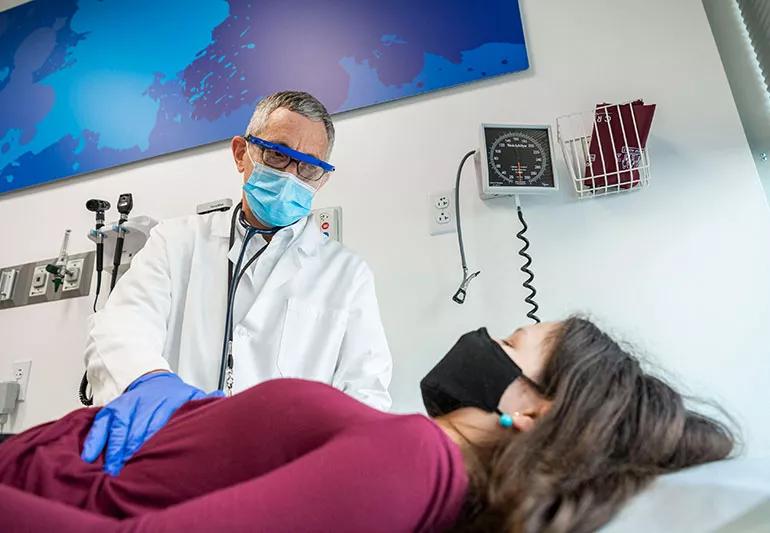The short answer from a primary care specialist

Q: I’m looking for a primary care doctor. What’s the difference between an internist and a family physician?
Advertisement
Cleveland Clinic is a non-profit academic medical center. Advertising on our site helps support our mission. We do not endorse non-Cleveland Clinic products or services. Policy
A: Internists are specialty-trained to treat adults from 18 years old through the geriatric years. They have intensive and comprehensive training in all aspects of adult medical care. Internists specialize in primary care screening and in treating common adult problems, such as diabetes and hypertension, as well as in treating patients with a complex combination of conditions.
Family medicine doctors are specialty-trained to care for people across the lifespan, from birth through the geriatric years. Family medicine doctors have formal training in pediatrics, adult medicine, obstetrics and gynecology, mental health and more. This broad training equips them to deal with a wide range of health problems for the entire family, with a focus on wellness, disease prevention and chronic disease management.
— Family medicine physician Garrett Kirkpatrick, DO
Advertisement

Sign up for our Health Essentials emails for expert guidance on nutrition, fitness, sleep, skin care and more.
Learn more about our editorial process.
Advertisement

The differences are few, but ophthalmologists can perform eye surgeries and more complex procedures

You don’t have to wait until you have symptoms of heart disease to seek cardiology care

Having a PCP means knowing where to go for a range of concerns — that’s a good thing for your lifelong health

Anyone can call themselves a nutritionist, but dietitians have specialized training

The best way to figure out which kind you need is to first speak with your primary care provider

They practice medicine similarly, but DOs have a focus on the mind, body, spirit connection

The Short Answer from one of our experts

Your first point of health contact

Even small moments of time outdoors can help reduce stress, boost mood and restore a sense of calm

A correct prescription helps your eyes see clearly — but as natural changes occur, you may need stronger or different eyeglasses

Both are medical emergencies, but they are very distinct events with different causes